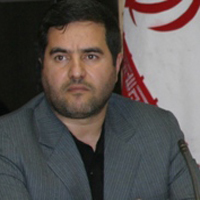The effect of knowledge-based leadership on sustainable competitive advantage with the mediation of management meritocracy (case study: Tehran Post Office)
Nowadays, the implementation of knowledge-based leadership as one of the components of management competencies is considered essential for the success of companies and institutions, which has attracted the attention of researchers all over the world. Knowledge-oriented leadership leads to the discovery of new knowledge, change, and improvement of methods and development of processes, and in this way creates competitive advantages in the organization. Competitive advantage is the superiority of the company compared to its competitors. Sustainable competitive advantage will create sustainable and superior capabilities for the organization which cannot be imitated by other competitors, cannot be discovered, and cannot be replaced. Competence is a combination of knowledge capacity, experience and skill, ability, and the way leaders behave constructively and effectively in management. The review of internal and external studies showed that Knowledge-based leadership is a new leadership style that has been less studied so far. The survival and success of future organizations depend on their competitive advantage. One of the factors in creating a competitive advantage is the development of the effect of knowledge-based leadership and effective leadership skills in the organization that is based on stable competitive advantage with variable mediation of management meritocracy (Tehran Post Office).
Design/Methodology/Approach:
This research in terms of purpose is applied type, in terms of data is quantitative, in terms of the method of data collection is survey type, and in terms of time is cross-sectional. The statistical population of this study includes 3500 employees of the Tehran Post Office. The sample size was calculated using Cochran's formula of 346 people. In the current study, the sampling method is stratified random. To collect data, a standard questionnaire was used. The validity of the questionnaire was obtained by experts and management experts and its reliability using Cronbach's alpha for all variables was more than 0.7. SPSS software and PLS software were used for data analysis.
The findings indicate the confirmation of all hypotheses and the appropriate fit of the research model, and the results showed that knowledge-based leadership has a significant effect on sustainable competitive advantage with the mediation of the meritocracy variable. Knowledge-based leadership has a significant impact on competitive advantage. Knowledge-based leadership has a significant impact on meritocratic management. Management meritocracy has a significant impact on competitive advantage.
In the field of competition, the post office will have an advantage if they can benefit from the services of competent managers. Competent managers implement a kind of knowledge-based leadership in the organization. Therefore, the Tehran Post Administration must have a knowledge-oriented leadership to have a competitive advantage and provide the basis for its strengthening. Knowledge-oriented leaders encourage employees to be more assertive in their opinions and to be more comfortable in sharing new ideas. As a result, they bring the organization to a competitive level. Therefore, according to the said content, it is concluded that knowledge-based leadership has a significant effect on sustainable competitive advantage with the mediation of the meritocracy variable. The results of this hypothesis are in line with the studies of Jafari and Alipour (2016), Tadberi and Rozitalab (2015), Banmairuroy et al. (2022), and Jasamuddin and Naqshbandi (2018). Based on the main hypothesis, as knowledge and information are necessary for competence, it is suggested to the managers and leaders of the Tehran Post Office, that they should design their management approach to promote knowledge and information and to share and disseminate it in the entire collection, and to improve and maintain a sustainable competitive advantage in the field of competition through meritocracy and promoting their competence and their subsets and their motivation.
-
The Impact of Environmental Constraints on Long-Term Economic Growth in Iran (Case Study: Land and Natural Resources)
Ali Younessi *, Hadi Ghafari
Environment and Development Journal, -
Analyzing the Effects of Honesty and Leadership of Passengers in the Model of Organizational Excellence of the Railway Company of the Islamic Republic of Iran
Abolfazl Khosravi *, Mohammad Reza Fathi, , Nader Savari
Road journal,


